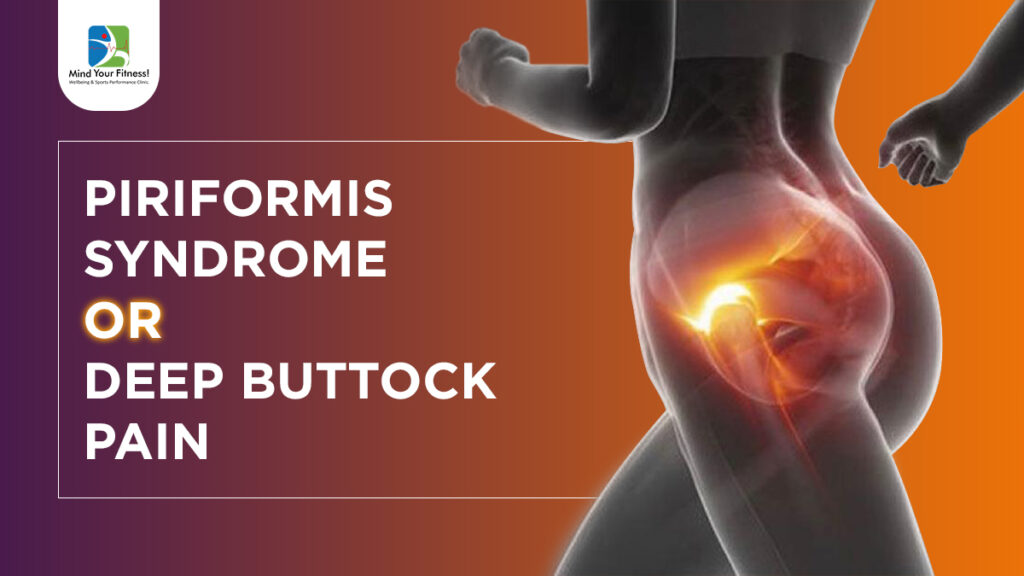
Piriformis is a small deep muscle situated under the gluteus muscle of the hip, through which the sciatic nerve passes.
Tightness of the piriformis muscle can cause pain or pinching of the sciatic nerve.
Piriformis syndrome happens when the tight piriformis muscle is forced to work for larger muscle groups around the hip, like gluteus muscle group or in someone having weak hip muscle strength.
Symptoms:
- Muscle spasm in deep buttock area.
- Pain imitating hip pain.
- Low back pain.
- Radiating pain from the back.
- Difficulty in walking.
- Improper hip joint biomechanics while squatting/ lifting weights.
- History of hip replacement.
- Sacro-iliac joint arthritis.
- Weak hip muscles.
- Overloading of the piriformis muscle.
Management of Piriformis syndrome:
Mild to moderate symptoms of pain can be managed in the following ways:
Applying hot pack or cold pack for local pain relief.
Hip strengthening exercises (free weight and resistance band exercises).
- Stretching of the piriformis muscle.
- Deep soft tissue release around the piriformis muscle to help with the trigger points.
- Gait or walking pattern correction.
- Avoid prolonged sitting.
- Buttock pain after prolonged sitting.
- Numbness and tingling due to pressure on the sciatic nerve.
- Pain radiating to the back of the thigh and leg.
- Difficulty in sitting on hard surfaces.
- Trigger points in the deep buttock muscles.
- Bursitis around the piriformis muscle.
- Difficulty in functional activities like squatting/lunging.
Causes:
- Prolonged sitting.
- Wallet neuritis- happens in males, often the deep buttock pain starts after sitting over the wallet in the back hip pocket.
- Repetitive trauma to the piriformis muscle.
- Avoid standing or walking for long when the pain is acute.
- Don’t do any activities that can cause the hip joint to pain further or cause any hip overuse injury.
Dr. Janhvi Vayada – Clinical Sports Physiotherapist





